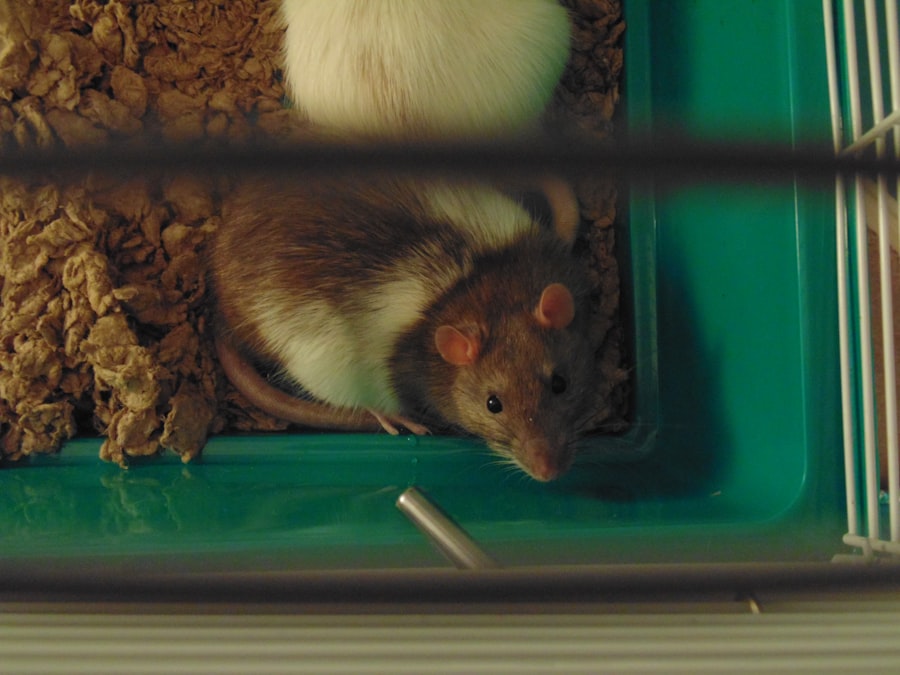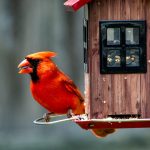Rats are highly intelligent and adaptable nocturnal animals known for their ability to thrive in various environments. They possess excellent climbing skills, enabling them to access elevated areas easily. This makes it crucial to secure all potential entry points to chicken coops.
Rats are prolific breeders, with a single female capable of producing up to 12 litters annually, each containing 20 or more offspring. This rapid reproduction rate can quickly lead to infestations if left unchecked. As opportunistic omnivores, rats consume a wide range of foods, including grains, fruits, vegetables, and meat.
Chicken coops attract rats due to the abundance of food and shelter they provide. Understanding rat behavior is essential for implementing effective pest control measures. By comprehending their habits and preferences, poultry keepers can develop strategies to prevent rat infestations and protect their property from potential damage.
Table of Contents
- 1 Securing the Chicken Coop
- 2 Implementing Proper Food Storage
- 3 Regular Cleaning and Maintenance
- 4 Using Natural Deterrents
- 5 Installing Motion-Activated Lights or Alarms
- 6 Seeking Professional Help if Necessary
- 7 FAQs
- 7.1 What are some effective ways to keep rats away from your chickens?
- 7.2 Why is it important to keep rats away from your chickens?
- 7.3 What are some signs that rats may be present in the chicken coop?
- 7.4 Are there any natural methods for keeping rats away from chickens?
- 7.5 Should I be concerned about using rat poison near my chickens?
Key Takeaways
- Rats are nocturnal and are attracted to food, water, and shelter.
- Secure the chicken coop by using hardware cloth, sealing any gaps, and elevating feeders and waterers.
- Proper food storage involves using metal or plastic containers with tight-fitting lids.
- Regular cleaning and maintenance of the coop and surrounding areas can help deter rats.
- Natural deterrents such as peppermint oil, predator urine, and garlic can help keep rats away.
- Motion-activated lights or alarms can startle rats and discourage them from entering the coop.
- Seek professional help if rat infestation becomes unmanageable despite preventive measures.
Securing the Chicken Coop
Inspect and Seal Off Entry Points
Start by thoroughly inspecting the coop for any potential entry points, such as gaps in the walls, windows, or doors. Seal off these openings with sturdy materials like wire mesh or metal flashing to prevent rats from squeezing through.
Ensure a Rat-Proof Foundation
It’s essential to ensure that the coop is raised off the ground and that there are no gaps or holes underneath that rats can use to burrow their way inside. This will prevent them from finding an easy way into the coop.
Maintain a Clean and Clutter-Free Environment
In addition to securing the physical structure of the coop, it’s vital to keep the surrounding area free of clutter and debris that could provide hiding spots for rats. Trim back any overgrown vegetation and remove any piles of wood or other materials that could serve as a nesting site for rats. By creating a clean and well-maintained environment around the chicken coop, you can significantly reduce the likelihood of rats taking up residence on your property.
Implementing Proper Food Storage

Proper food storage is crucial in deterring rats from infesting your chicken coop. Rats are attracted to the smell of food and will readily seek out sources of nourishment. Store all chicken feed in secure containers that are made of durable materials such as metal or heavy-duty plastic.
These containers should have tight-fitting lids that can’t be easily chewed through by rodents. It’s also important to elevate the feed containers off the ground to make it more difficult for rats to access them. In addition to securing the chicken feed, it’s important to minimize spillage and waste around the coop.
Clean up any spilled feed promptly and avoid leaving food out overnight. By reducing the availability of food sources, you can make your property less appealing to rats and discourage them from taking up residence near your chicken coop.
Regular Cleaning and Maintenance
Regular cleaning and maintenance of the chicken coop are essential in preventing rat infestations. Keep the coop clean and free of debris, as clutter provides hiding spots for rats and other pests. Remove any spilled feed, feathers, and droppings on a daily basis to minimize potential food sources for rats.
It’s also important to regularly inspect the coop for signs of wear and tear, such as damaged walls or roofing, as these can provide entry points for rats. In addition to cleaning the coop, it’s important to maintain good hygiene practices when handling poultry. Properly dispose of any dead birds or eggs to prevent attracting scavenging rodents.
By staying on top of regular cleaning and maintenance tasks, you can create an environment that is less hospitable to rats and reduce the risk of infestation.
Using Natural Deterrents
Natural deterrents can be effective in deterring rats from infesting your chicken coop. Consider planting aromatic herbs such as mint, lavender, or rosemary around the perimeter of the coop, as these plants are known to repel rodents due to their strong scents. You can also use natural predators such as cats or dogs to help keep rat populations in check.
However, it’s important to ensure that any pets or predators are properly supervised and do not pose a threat to your poultry. Another natural deterrent is the use of essential oils with strong odors that rats find unpleasant, such as peppermint or eucalyptus oil. Soak cotton balls in these oils and place them strategically around the coop to create a barrier that rats will be reluctant to cross.
By incorporating natural deterrents into your pest control strategy, you can minimize the risk of rat infestations without resorting to chemical solutions.
Installing Motion-Activated Lights or Alarms

Deterrent Effect of Motion-Activated Devices
Rats are nocturnal animals and are most active in low-light conditions, making them more likely to be deterred by sudden bursts of light or sound. Motion-activated lights can startle rats and make them think twice about venturing near your property, while alarms can create a disruptive noise that rats find unpleasant.
Strategic Installation and Maintenance
When installing motion-activated lights or alarms, be sure to position them strategically around the perimeter of the chicken coop to maximize their effectiveness. It’s also important to regularly check and maintain these devices to ensure they are functioning properly.
Creating a Rat-Deterrent Environment
By incorporating these technological deterrents into your pest control strategy, you can create an environment that is less inviting to rats and reduce the risk of infestation.
Seeking Professional Help if Necessary
If despite your best efforts, you find yourself dealing with a persistent rat infestation, it may be necessary to seek professional help. Pest control experts have the knowledge and experience to effectively manage rat populations and prevent them from causing further damage to your property. They can assess the extent of the infestation and recommend appropriate measures for eradication and prevention.
Professional pest control services may include the use of traps, baits, or chemical treatments that are specifically designed to target rats while minimizing risks to other wildlife or pets. Pest control experts can also provide valuable advice on how to prevent future infestations by implementing long-term solutions such as structural repairs or ongoing monitoring. By enlisting the help of professionals, you can effectively address a rat infestation and safeguard your chicken coop from further harm.
In conclusion, understanding the behavior of rats is crucial in implementing effective pest control measures around your chicken coop. By securing the coop, implementing proper food storage practices, maintaining cleanliness, using natural deterrents, installing motion-activated lights or alarms, and seeking professional help if necessary, you can minimize the risk of rat infestations and protect your poultry and property from damage. With proactive management strategies in place, you can create an environment that is less appealing to rats and ensure the well-being of your flock for years to come.
If you’re looking for ways to keep rats away from your chickens, you may also be interested in learning about the importance of providing a heater for your chicken coop. A heated coop can help keep your chickens warm and comfortable during the colder months, while also deterring pests like rats. Check out this article for more information on how to keep your chickens cozy and safe.
FAQs
What are some effective ways to keep rats away from your chickens?
Some effective ways to keep rats away from your chickens include keeping the chicken coop clean and free of food scraps, sealing any entry points into the coop, using rat traps or bait stations, and keeping the surrounding area free of clutter and debris.
Why is it important to keep rats away from your chickens?
Rats can pose a threat to the health and safety of your chickens. They can spread diseases, steal eggs, and even attack young or weak chickens. Additionally, rats can cause damage to the chicken coop and feed storage areas.
What are some signs that rats may be present in the chicken coop?
Some signs that rats may be present in the chicken coop include droppings, gnaw marks on feed containers or coop structures, and sightings of rats either inside or around the coop.
Are there any natural methods for keeping rats away from chickens?
Yes, there are natural methods for keeping rats away from chickens. Some of these methods include using essential oils such as peppermint or eucalyptus, planting rat-repellent plants like mint or lavender, and keeping a clean and well-maintained coop and surrounding area.
Should I be concerned about using rat poison near my chickens?
Yes, you should be concerned about using rat poison near your chickens. Rat poison can be harmful to chickens if ingested, and it can also pose a risk to other wildlife and pets. It’s important to use rat poison carefully and consider alternative methods for rat control.
Meet Walter, the feathered-friend fanatic of Florida! Nestled in the sunshine state, Walter struts through life with his feathered companions, clucking his way to happiness. With a coop that’s fancier than a five-star hotel, he’s the Don Juan of the chicken world. When he’s not teaching his hens to do the cha-cha, you’ll find him in a heated debate with his prized rooster, Sir Clucks-a-Lot. Walter’s poultry passion is no yolk; he’s the sunny-side-up guy you never knew you needed in your flock of friends!







